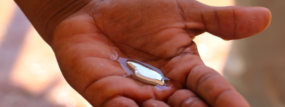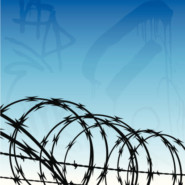Posted on 11 Oct 2016
In several conflict-affected countries in East and Central Africa, the state has been hijacked and transformed from an institution that is supposed to provide social services and safeguard the rule of law into a predatory criminal enterprise that does quite the opposite. These criminal cells use state power to loot public coffers and natural resource wealth with impunity, and sideline or silence those who get in their way. Oversight institutions are co-opted, marginalized, removed altogether, or used as political instruments to go after opponents or independent voices. Leaders loot natural resources and divert state funds, funneling public money directly into the instruments of war and repression. Security forces use lethal force to quell protests, and countless journalists and activists have been attacked, intimidated, and harassed. These regimes often deny any sort of peaceful path to political turnover or meaningful power sharing, thereby encouraging the rise of armed opposition movements, which in turn lead to cycles of increasingly deadly force, marked especially in East and Central Africa by the commission of mass atrocities. Militias supported by and loyal to violent and corrupt regimes, meanwhile, are often used to carry out campaigns of violence and intimidation against political opponents. This abusive and predatory system of governance is called violent kleptocracy. And, for most citizens, this type of governance yields disastrous results; it stifles commerce and economic development, facilitates a wide range of criminal activities, and often catalyzes violence and violent extremism.
The perpetrators of these practices have found ample facilitation in the workings of the globalized economy. The deluge of documents revealed in the Panama Papers leak show just how easy it is for criminals and kleptocrats to move their ill-gotten gains without being detected—and this leak still only represents a small fraction of the total number of anonymous shell companies used by government officials and secretive investors.
Fighting corruption must become a cornerstone of U.S. engagement with countries that have been plagued by violent kleptocracy. The U.S. government should expand its support for the development of robust oversight institutions and accountability mechanisms and redouble its efforts to create and protect space for civil society and the press to act as watchdogs and articulate public concerns. However, in hijacked states, efforts toward this end are typically thwarted by elites who co-opt, sideline, or bypass institutions designed to restrain their ability to loot with impunity. As evidenced in South Sudan—a country with a legal and institutional framework for managing state assets and combating corruption that in many ways exceeds international best practice—corruption is neither a purely technical challenge nor solely the result of insufficient institutional capacity. Progress achieved through good governance initiatives is likely to be short-lived unless external interventions can fundamentally alter the incentive structures of those in power. Simply put: there must be consequences for kleptocrats, for those who obstruct reform, and for private sector actors that facilitate and enable their operations. The international community has the power to chip away at the environment of impunity that characterizes violent kleptocracies—and the United States is in a position to play a leading role.
Achieving this objective will involve harnessing the tools of financial pressure at the U.S. government’s disposal to go after what often motivates violent kleptocrats in the first place: their ill-gotten gains.
The international anti-corruption architecture is insufficient for addressing the challenge of violent kleptocracy largely because current efforts largely fail to impose any consequences on kleptocrats themselves. However, given the interconnectivity of the global financial system, the size and primacy of the U.S. economy, and the significance of the U.S. currency in global trade and financial transactions, the U.S. government is in a unique position to target the assets of kleptocrats through the use financial pressure. These tools of financial pressure that have successfully been used for other national security objectives should increasingly be deployed in countering atrocities and conflict fueled by mass corruption. Specifically, financial pressure should be used to create leverage in support of political and diplomatic strategies developed in concert with international partners and organizations like the United Nations (UN), European Union (EU), and African Union (AU). Three types of tools could be particularly potent for building leverage in the fight against violent kleptocracy: targeted sanctions, anti-money laundering measures, and anti-bribery provisions.



